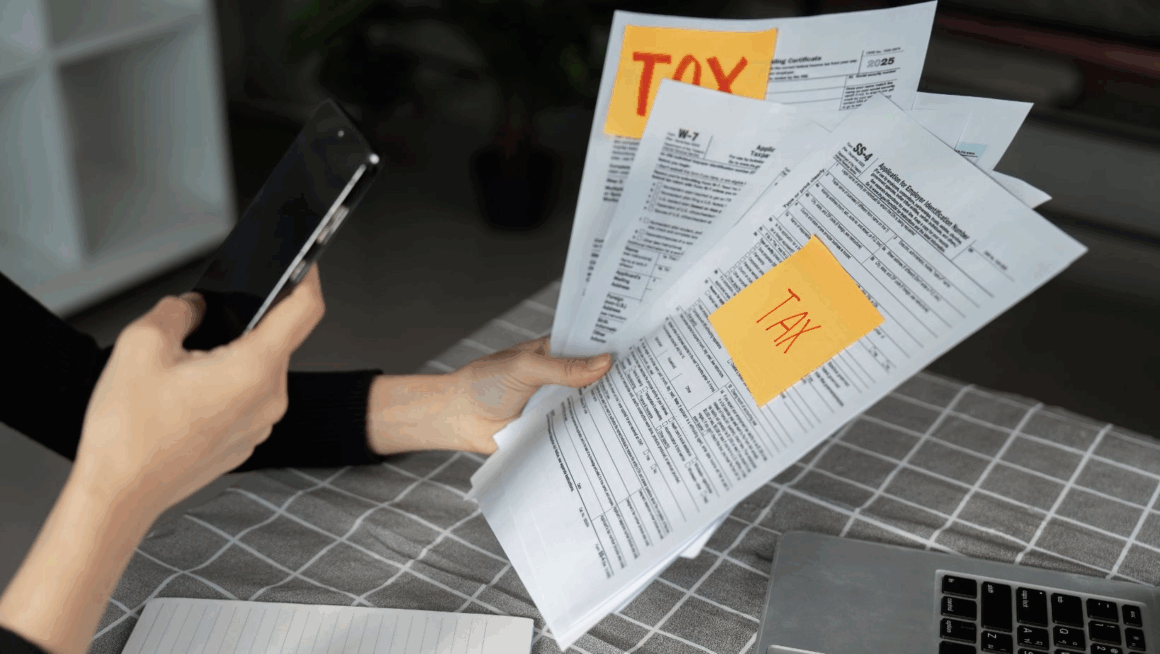So you’ve done it. You left. Maybe you finally ditched your overpriced Brooklyn studio, or you packed up your LA life, sold your car, and now you’re watching the sun rise over the Bosphorus with a strong cup of Turkish coffee. The move abroad is real. It’s exciting, even a little surreal. But eventually, often right around April, you remember something less romantic: the IRS.
And yeah, they still want to hear from you.
The U.S. Doesn’t Really Let Go
One of the weirder quirks of being American is that your tax obligations come with you, like a forever stamp on your financial life. The U.S. is one of the very few countries that taxes based on citizenship, not residency. So even if you haven’t set foot in the States for years and all your income is earned overseas, you’re still expected to file a tax return every year if your income clears the basic thresholds, which it probably does.
That includes:
● Salary from a foreign job
● Freelance work or remote contracts
● Rental income (U.S. or otherwise)
● Dividends, interest, capital gains
● Pensions, retirement withdrawals, crypto income (yes, that too)
Even if you’re getting paid in euros, dirhams, or baht, the IRS still wants a report. Whether or not you owe anything is another story. But reporting? Always.
There Are Ways to Lower (or Eliminate) What You Owe
Luckily, most expats don’t actually end up paying much, or anything at all, to the IRS, thanks to a couple of workarounds.
Foreign Earned Income Exclusion (FEIE)
If you qualify, you can exclude a big chunk of your foreign-earned income up to $126,500 in 2024. The keyword there is “earned.” Salary, wages, maybe contractor income? That counts. Dividends or rental income? Not so much.
To use FEIE, you have to meet one of two tests:
● Physical presence test: You were outside the U.S. for 330 days in a 12-month stretch
● Bona fide residence test: You’ve properly settled in another country and can prove it
This isn’t a one-size-fits-all thing, though. If you’re a digital nomad constantly bouncing around, FEIE can be hard to qualify for. You have to be very clear about your days. A three-week trip back to visit family could throw it all off.
Foreign Tax Credit (FTC)
If you’re paying income tax in another country (say, France, where they definitely notice), the Foreign Tax Credit lets you offset your U.S. tax bill dollar-for-dollar with what you paid abroad.

This can be more useful than FEIE if you’re in a high-tax country, or if you’ve got income types that FEIE doesn’t cover. In some cases, people use both. It gets complicated, but it’s legal and often smart.
Don’t Forget the Foreign Account Stuff
If you opened a bank account abroad, you may also need to file:
● FBAR (FinCEN 114) if your total foreign account balances ever hit $10,000 (yes, even for one day)
● FATCA (Form 8938) if your assets exceed certain thresholds ($200,000+ for single filers abroad)
This includes investment accounts, pensions, and sometimes foreign life insurance. Even if those accounts didn’t earn interest, you might still need to report them. The penalties for not doing it can be absurdly high, even for innocent mistakes. So yeah, don’t skip this part.
State Taxes: The Sticky Bit
Some U.S. states, especially California and New Mexico, are clingy. Just because you’ve moved overseas doesn’t mean they’ll let go. If you still have a mailing address or property there or even vote in their elections, they might consider you a resident for tax purposes.
The solution? Cut ties. Close your local bank accounts, change your voter registration, and stop using your cousin’s address in San Diego for Amazon deliveries. It all matters.
Haven’t Filed in a While? Don’t Freak Out
Lots of expats didn’t realize they needed to keep filing, especially if they weren’t earning much or were paying taxes locally. The IRS actually has a fairly reasonable program called the Streamlined Filing Compliance Procedures.
If you:
● Haven’t filed
● Didn’t know you were supposed to
● And weren’t trying to hide anything intentionally
You can catch up by filing the last 3 years of returns and up to 6 years of FBARs, with no penalties.
It’s not a magic wand, but it’s a second chance. A lot of people use it and move on with clean records.
So… What Now?
Even if you’ve fully embraced your new country, riding scooters through Saigon, running a design studio in Amsterdam, or teaching English in rural Japan, you’re still on the IRS’s books. It’s annoying, yes. But manageable.
Most expats don’t owe much, and with the right combination of the FEIE, FTC, and a decent tax advisor who understands both systems, you can stay compliant without handing over more than you need to. Expat Tax Online can equip you with the right professional for your situation and location.
Just… don’t ignore it. That scary letter five years from now? Avoidable. Completely.


More Stories
10 Must-Know Factors When Choosing a Forex VPS Provider